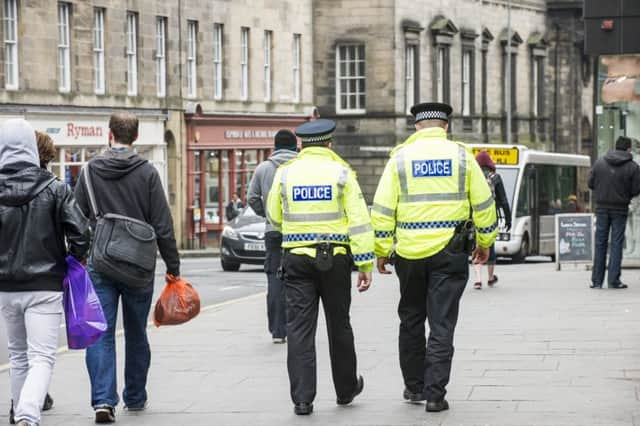Spare a thought for police facing drug-crazed violence while being filmed '“ Tom Wood


The police, other emergency services and the military all face the same difficulty. Policing was once described as 99 per cent humdrum routine and one per cent dangerous action. It’s a fair description and that ratio, together with the uncertainty that attends every door knocked, does much to make stress inherent in all frontline emergency jobs. A dig into the figures proves the point. Police staff suffered a range of maladies including anxiety, depression, insomnia and post-traumatic stress.
Most officers who have seen frontline service will carry memories that haunt them. It’s often the small tragedies that stick, usually early in service before professional defences are developed – the death of a child, a fatal road accident or, in my case, a toddler drowned in a garden pond.
Advertisement
Hide AdAdvertisement
Hide AdThough it was almost 50 years ago, I will never forget the feeling of helplessness as a lone, very inadequate, young officer trying to deal with the inconsolable grief and guilt of the parents of that wee one. I can recall it with crystal clarity and it marked me, making me nervous around young children near water ever since. It’s usually such incidents when you are alone that leave the scars. Those dealt with in a team are easier because there are powerful, informal support systems. It’s far short of professional counselling, no doubt, but a chat around the mess room table or a word from the sergeant would often work wonders. It seems like the stuff of old cop shows, but it was very real and that bond of shared experience often turned into life-long friendship.
But problems can still come later when an individual leaves the team. With time to reflect, ghosts from the past can return, many retired military and ‘blue light’ workers are seriously affected by delayed traumatic stress, sometimes years later. The armed forces have always recognised the need for maintaining the comradeship that lies at the heart of military units. It was no coincidence that regimental associations and the British Legion proliferated in the post-war years and why the Retired Police Officers Association is so active and important today. For the threats have not passed, the increasing trend of historic reinvestigations have added new stresses – with the blinding vision of hindsight and the endless desire of some to rewrite history, there seems no end to these often fruitless exercises.
And today’s ‘blue light‘ workers face new challenges. The exposure to people with severe mental illness has increased significantly since many mental hospitals were closed, while the effects of new psycho-active drugs regularly expose them to a level of violence unknown a few years ago. And they work knowing their desperate struggles will, in all probability, be filmed, edited selectively and uploaded on social media before they get back to the station.
The Chief Constable of Police Scotland is focussing on local policing identity as part of his first year’s priorities. He is right to do so for many reasons, not least the reinforcement of the team bonds that add so much to the health and resilience of all on the frontline.
Tom Wood is a writer and former Deputy Chief Constable
